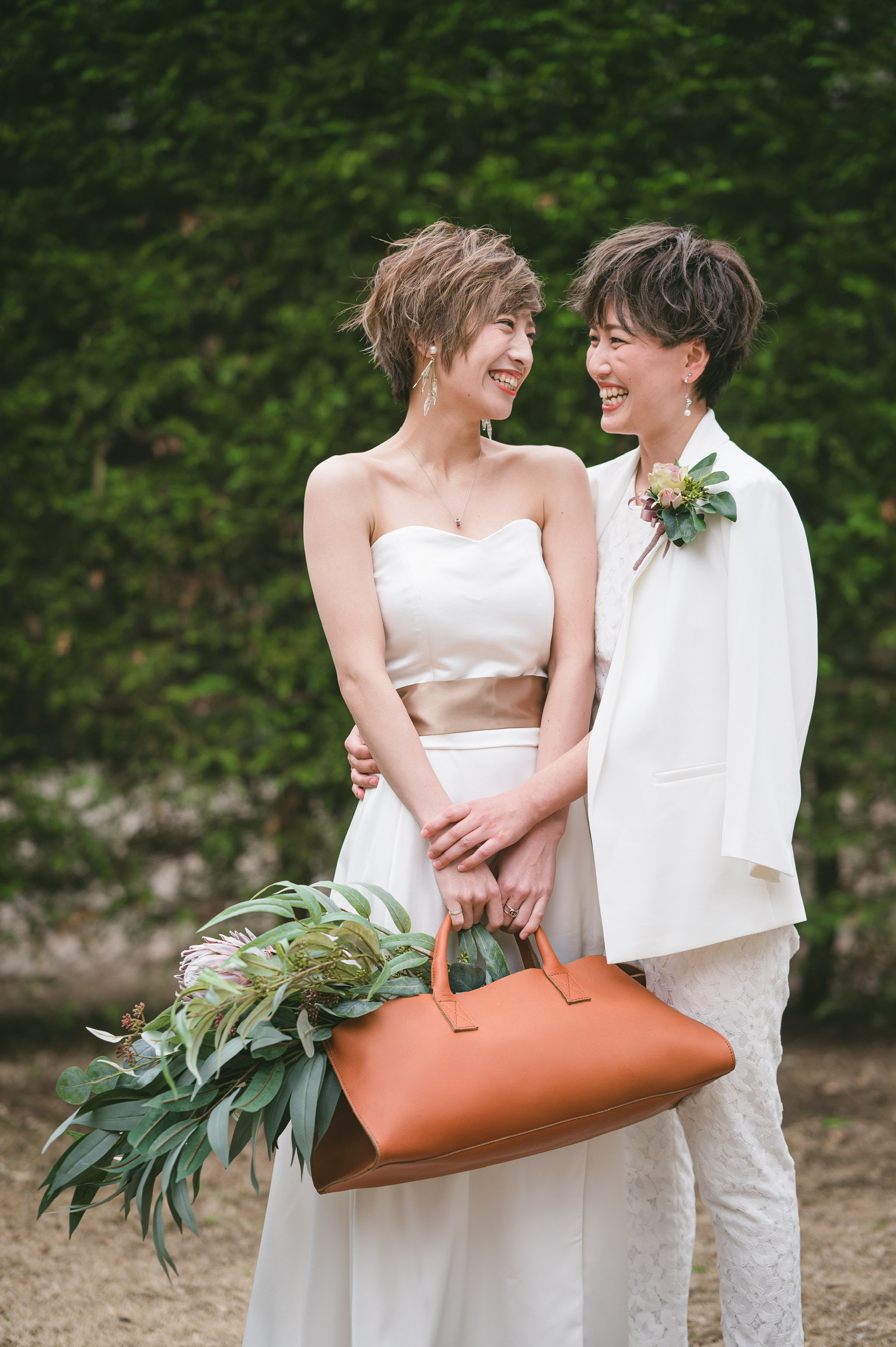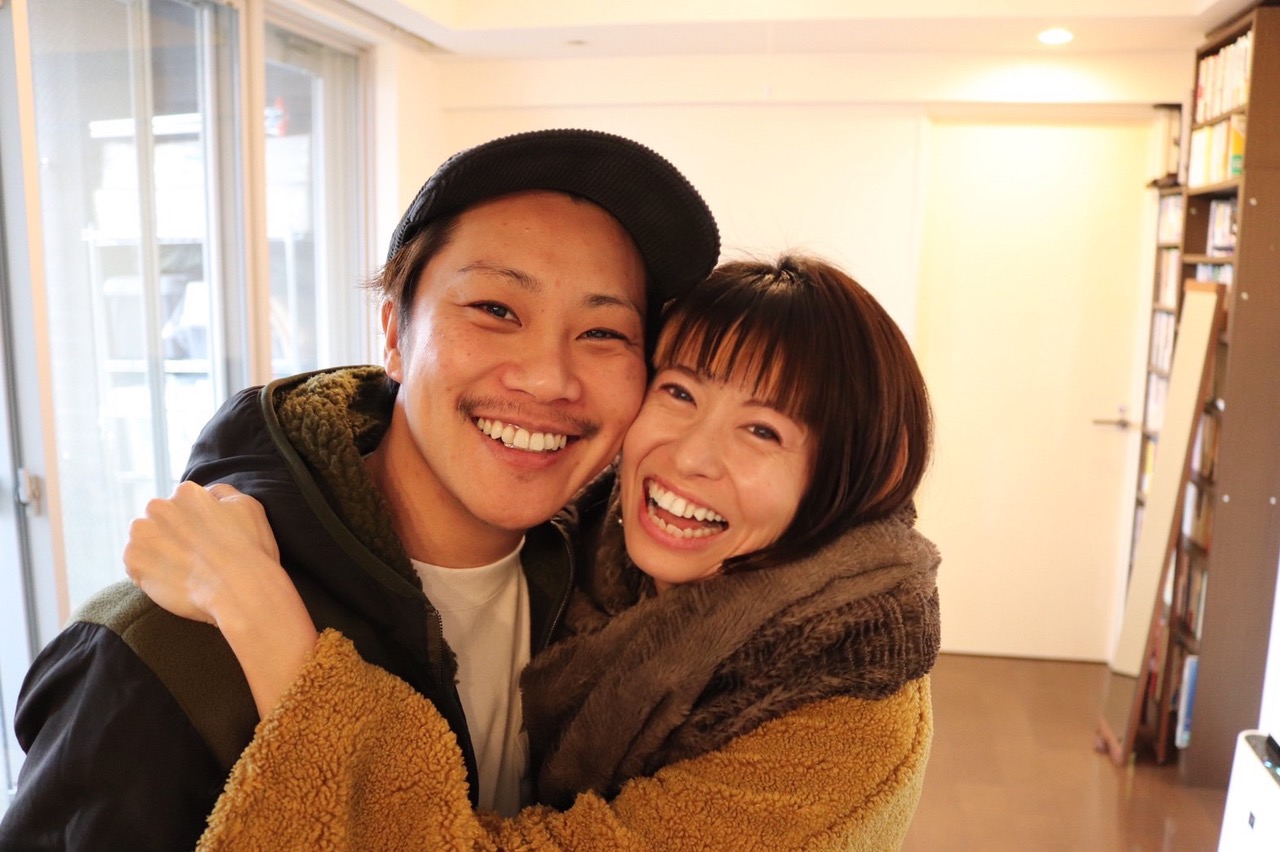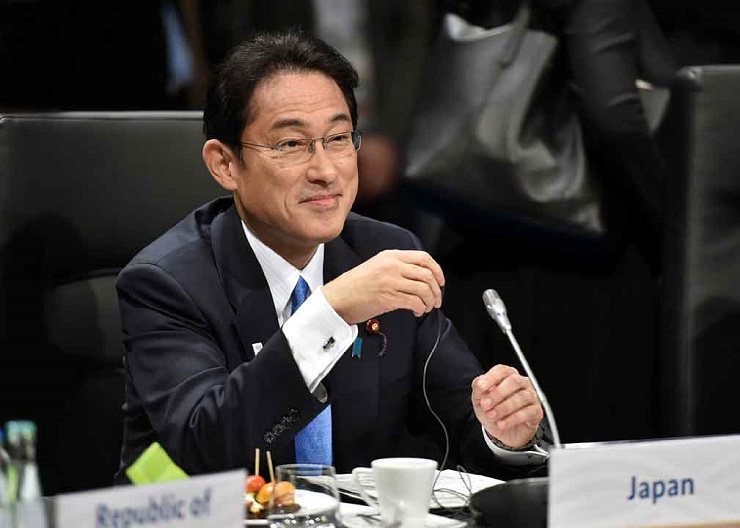
On a stifling July day last summer, Yumi Nagaya and her partner did what generations of LGBTQ couples in Japan could only dream of. Wearing identical silver wedding rings, the two were issued a certificate formally recognizing their union in front of a Tokyo official.
The piece of paper, called a partnership certificate, allows them to do many things previously available only to straight, married couples, such as renting an apartment together. But Nagaya is painfully aware of the reality: She and her 26-year-old partner are not legally married.
Outside their local government’s jurisdiction in the Setagaya neighborhood of Tokyo, the two are practically strangers in the eyes of the law. If one of them is hospitalized, her partner does not have the right to visit as a spouse in a marriage would. Nor can they share parental rights of any children they wish to have.
“It feels like the government is mocking us—they know we exist, but they’re not doing anything to protect us,” Nagaya told VICE World News, referring to Japan’s refusal to legalize same-sex marriage.

In Japan, gay marriage is not legal. The national government has maintained that only a man and a woman can be wedded, a position backed as recently as last month by a court in Osaka. Frustrated with the lack of progress, a number of local authorities have since 2015 taken it upon themselves to issue certificates to same-sex partners to recognize their unions.
With these pieces of paper, couples are given access to some rights previously denied to them—like visiting their partners in hospital or enrolling in the same insurance.
While Japan’s LGBTQ people and rights activists acknowledge that this is a big step forward, they argue it’s far from equal.
Only nine out of 47 prefectures have implemented this system. And at a judicial and national level, change seems like a distant prospect. On June 20, the district court in the western prefecture of Osaka ruled that same-sex couples weren’t guaranteed the constitutional right to marry because unions should be “between a man and a woman.”
This recent ruling, delivered in one of several lawsuits challenging the Japanese government’s ban on same-sex marriage and is being appealed, was met with dismay by LGBTQ activists. Many have been reminded just how fragile their rights are and how monumental the task at hand is.
Nagaya, who runs a startup called Suns up that provides LGBTQ people with job opportunities and lifestyle support, was enraged when she heard about the Osaka ruling. She admitted that it is now hard to imagine a future where same-sex marriage is legal. “To be honest, I wonder if Japan can really change,” she said.
Soyoka Yamamoto, an activist who was at the forefront of pushing the Tokyo metropolitan government to adopt same-sex partnerships, a move announced in June, said Osaka’s court decision made her painfully aware that the certificates were far from enough.
“I feel angry all the time, but I don’t long for marriage anymore because it’s too painful,” she told VICE World News.
Japan’s ban on same-sex marriage is not unique among its neighbors. Taiwan is the only major Asian jurisdiction to ratify LGBTQ unions, though Thailand has edged closer to legalizing such partnerships.
But among Japan’s citizens, there’s increasing support for same-sex marriage. Multiple opinion polls indicate voters support such unions, indicating a growing acceptance of Japan’s LGBTQ population.
The real hurdle in legalizing same-sex marriage is getting Japan’s greying and male-dominated ruling political party to pass legislation, Takashi Kazama, a professor of gender and sexuality at Chukyo University, told VICE World News.
“I believe the government has a strong desire to maintain the traditional family system, where the man is the head of the household and the wife is secondary,” he said, adding that same-sex unions would inherently upend such structures.
Rather than waiting an indefinite time for Japan’s ruling party to legalize same-sex marriage, local governments have therefore instead found a way to extend some rights to LGBTQ couples by implementing the partnership certificate system.
In addition to visiting their partner in hospital, same-sex couples who have certificates can move into public housing facilities together, rent property (if the landowner allows them to lease property as a couple), enroll in certain types of life insurance, and get access to specific partnership benefits offered by some companies, like a family cell phone plan.
But these privileges are only recognized by the local government they registered with, meaning once outside such jurisdiction, they’re no longer considered family. These rights are also not guaranteed. Landlords, companies, and hospitals can still freely deny same-sex couples privileges other couples enjoy because they aren’t legally married.
Kento Inoue, a 36-year-old transgender man, said he was thankful for the partnership system. But he can’t shake the feeling that the certificates feel forced. “I apologize for my language, but I think there are some government officials who wanted to introduce the partnership system simply to get the LGBTQ population to shut up,” he told VICE World News.
An LGBTQ activist who has for almost 12 years run G-pit—a company that helps transgender people get gender confirmation surgeries—he had hoped to retire by now, optimistically thinking that gay marriage would be legalized. But after the Osaka court’s ruling, he felt hopeless. “In this age, there are more people participating in the Tokyo Pride Parade and other events, people are raising their voices, we’re becoming more visible, but still, it’s not enough,” he said.

Though tying the knot with his longtime girlfriend Nana in March should have been a celebratory occasion, Inoue said he felt guilty when all of his gay friends and allies aren’t afforded the same rights. But he was only able to legally get hitched because 12 years ago, he underwent sex confirmation surgery, which is required of trans people if they want to marry their partners in Japan as only then would the couple be legally considered as members of opposite sexes.
“I had my womb removed so that I could be considered a man in the government’s eyes, so that down the line, I could marry the person I love,” he said. Thinking back, Inoue doesn’t regret the surgery, but wishes there were more LGBTQ role models so he knew there wasn’t just one option for him.
But with that being said, Inoue urged it was important to remain positive.
“Even though it’s a painful situation, I don't think the LGBTQ community should look down,” he said. Because if they weren’t hopeful for the future, he explained, change would never come.
Follow Hanako Montgomery on Twitter and Instagram.
Related posts:
Views: 0
 RSS Feed
RSS Feed

















 July 1st, 2022
July 1st, 2022  Awake Goy
Awake Goy 


 Posted in
Posted in  Tags:
Tags: 
















